The Real Reason Queen Elizabeth and Princess Diana Had Such A Deeply Troubled Relationship
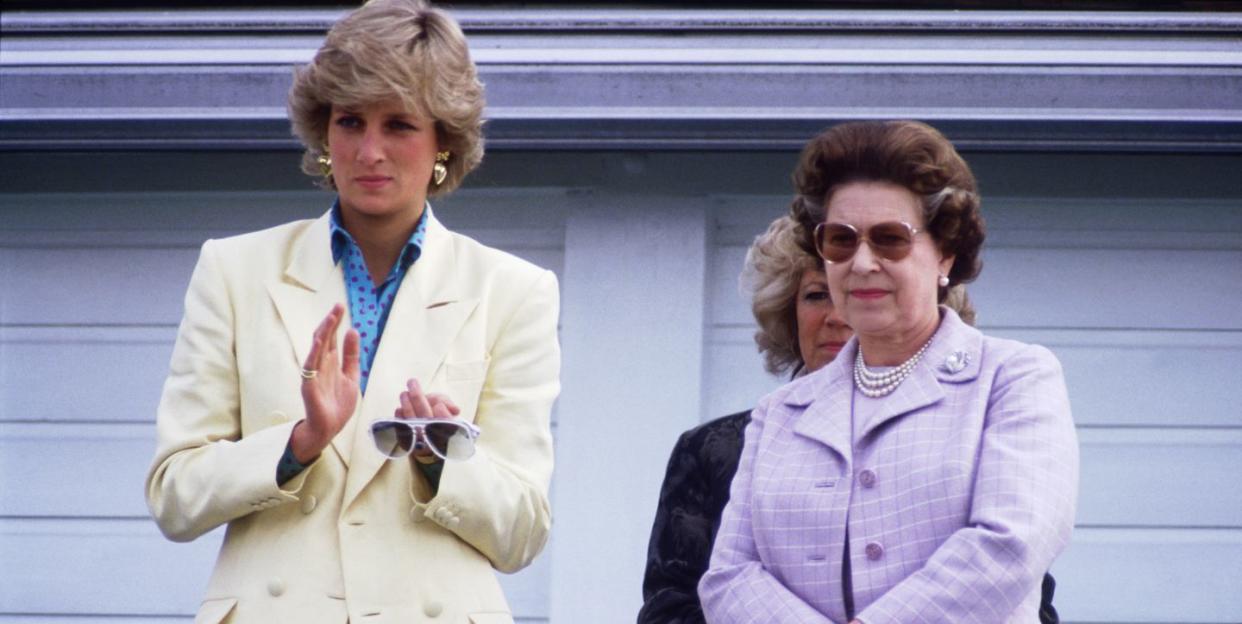
To this day, Princess Diana is loved and missed by so many - including Her Royal Highness Queen Elizabeth II. But like most families, Diana and Elizabeth didn't always see eye to eye. Their bond was tested more than once - especially when news broke of Charles's ongoing affair with Camilla Parker Bowles.
Nevertheless, it's clear that the Queen still had a deep appreciation for the work Diana did for the British throne and greater world. Take a look back at Diana's relationship with Her Majesty from the time Charles introduced her to his mom, up until her tragic passing in August 1997.
The situation was a tough one from the start.
Princess Diana - who was known as Lady Diana Spencer at the time - had gone on dates with Charles only about a dozen times before their engagement was announced in 1981. The two met back in 1977 when Diana was just 16 years old and Charles was 29. As the heir to the throne approached 30, pressure was mounting on him to find someone to settle down with permanently. Lady Diana Spencer seemed like a good fit - she was young, her parents had ties to the royal family, and she was viewed as virginal (while Camilla, by contrast, allegedly "had a history" that the royals didn't approve of).
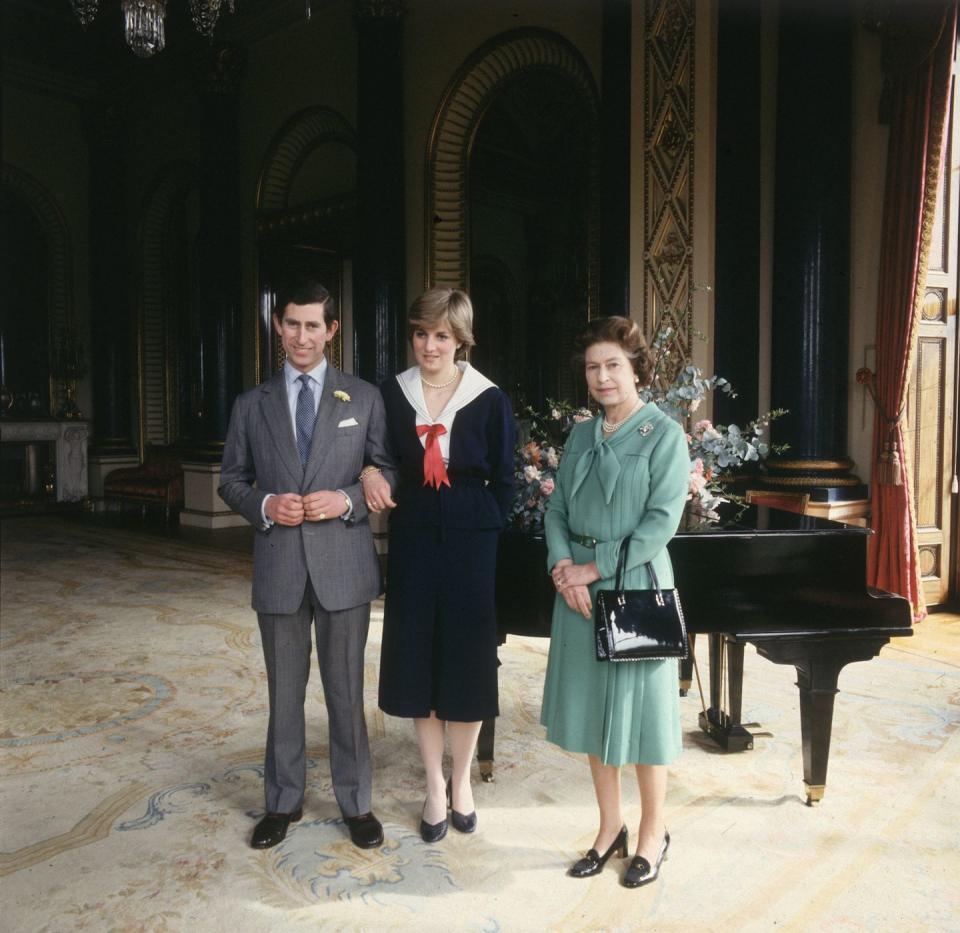
And so, because Diana seemed like a good match for Charles, the Queen accepted the arrangement. A 2001 Reader's Digest article claims that the Queen expected her future-daughter-in-law - one who came from an aristocratic background - to somewhat understand what royal life entailed. Diana, however, was reportedly "burdened" by the pressures of becoming royalty. After the two got married, Diana penned a letter in 1991 detailing how she felt "extremely isolated" and "continuously misunderstood" by the royal family.
Seeing as it was difficult for Diana, the Queen was reportedly sympathetic to her. But that changed as the years went on.
Diana's brutal honesty challenges the monarchy.
By the early 1990s, the People's Princess had broken royal protocol a few times already. For instance, she had picked her engagement ring from a catalog (unlike most of the royals) instead of having it custom made and refused to say she'd "obey" Charles during their wedding vows. Everything from her style choices to her charitable work continued to prove that she was a bit of a rebel in the family.
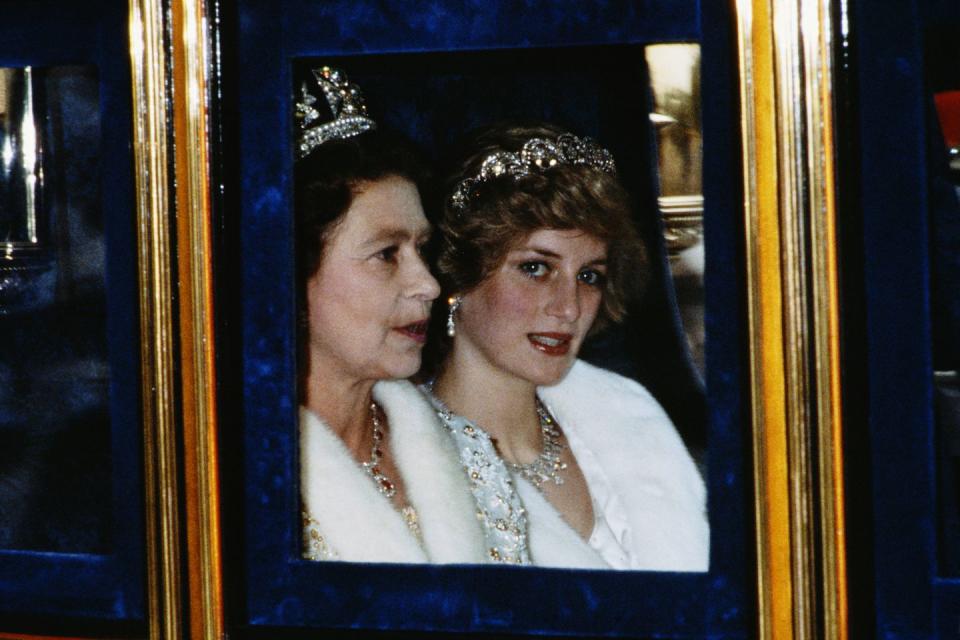
But what really tested the Queen and Diana's bond was the 1992 publication of Andrew Morton's book Diana: Her True Story. In it, Diana collaborated with the royal biographer and got her friends and family to talk candidly about her troubled marriage with Charles, life inside the House of Windsor, and even touching on her relationship with the Queen.
Even though Diana's participation with the book wasn't confirmed until after her death in 1997, the damage had already been done. The Queen was allegedly "stunned" by what was written and that her daughter-in-law would air her "dirty linen in such a way." But as Diana later admitted, she felt "desperate" and as if she was "at the end of her tether."
In the documentary Diana: In Her Own Words, the Princess claimed she had sought help from the Queen in 1986 because she believed "her marriage was loveless." But, according to Diana, the Queen was less than sympathetic.
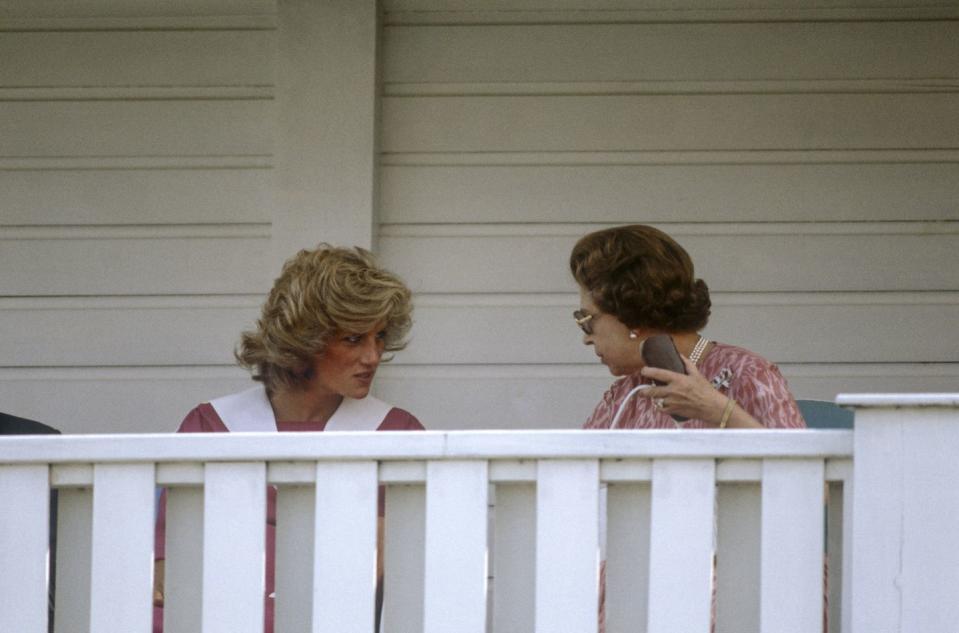
"I went to the top lady and said: ‘I don’t know what I should do.' She said: ‘I don’t know what you should do.’ And that was it. That was ‘help.'”
Of course, all of this is not to say that the Queen wasn't equally disgusted with Charles's cheating. In fact, Pop Sugar reports that the Queen and her husband, Prince Philip, took it upon themselves to give both of them "an intervention of sorts."
Meanwhile though, Diana continued talking to the press. In 1995, she gave another extremely revealing interview to the BBC detailing her relationship with the crown and dealing with Charles. She also admitted in it to "allowing her close friends" to speak to Andrew Morton for his controversial book. All of this undoubtedly created more distance between Diana and the Queen.
Charles and Diana's divorce complicates things more.
After it was clear that Diana and Charles were drifting further and further apart, the Queen wrote a letter to Princess Di specifically advising the couple to get divorced.
According to Paul Burrell, Diana's former butler, Her Majesty had consulted with the Archbishop of Canterbury, the prime minister, and Charles himself, and they had collectively "decided the best course for her [Diana] was divorce." He claimed that Diana was not happy about the memo and found it to be "rich" that they got to decide whether she divorced her husband or not.
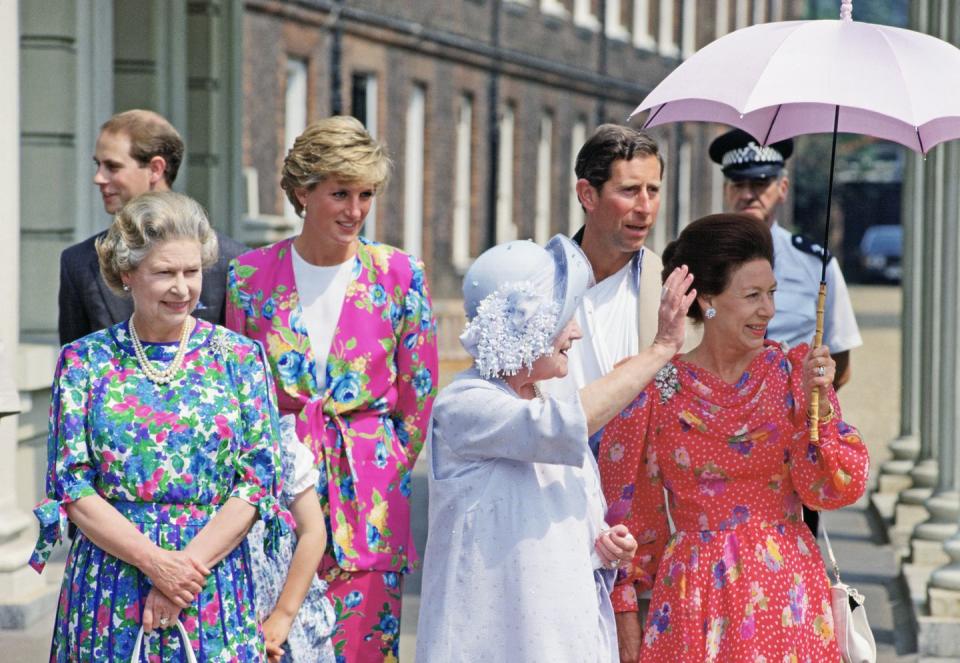
In August 1996 though, the two did officially divorce. When all was settled, Diana was stripped of her "Royal Highness" title. The New York Times reports that the Queen was ready to allow Diana to keep the honorific, but Charles was especially keen on her giving it up.
After Diana's death and beyond.
When Diana tragically passed away on August 31, 1997, the entire world mourned her loss. But as many publications have pointed out, Queen Elizabeth was slammed by the public for the way she handled the tragedy. Specifically, Her Majesty was criticized for what some believed was a "failure to capture the mood" of the country in her address to the nation, despite offering heartfelt words about the People's Princess:
I want to pay tribute to Diana myself. She was an exceptional and gifted human being. In good times and in bad, she never lost her capacity to smile and laugh, nor to inspire others with her warmth and kindness. I admired and respected her - for her energy and commitment to others, and especially for her devotion to her two boys.
But all the backlash from her speech aside, an unearthed letter from six days after the princess's passing shows a much deeper look into the genuine emotions Elizabeth was feeling at the time. Judging by her words, she seemed to have a real sense of respect and admiration for her late daughter-in-law, even though the two went through some rather turbulent years together.
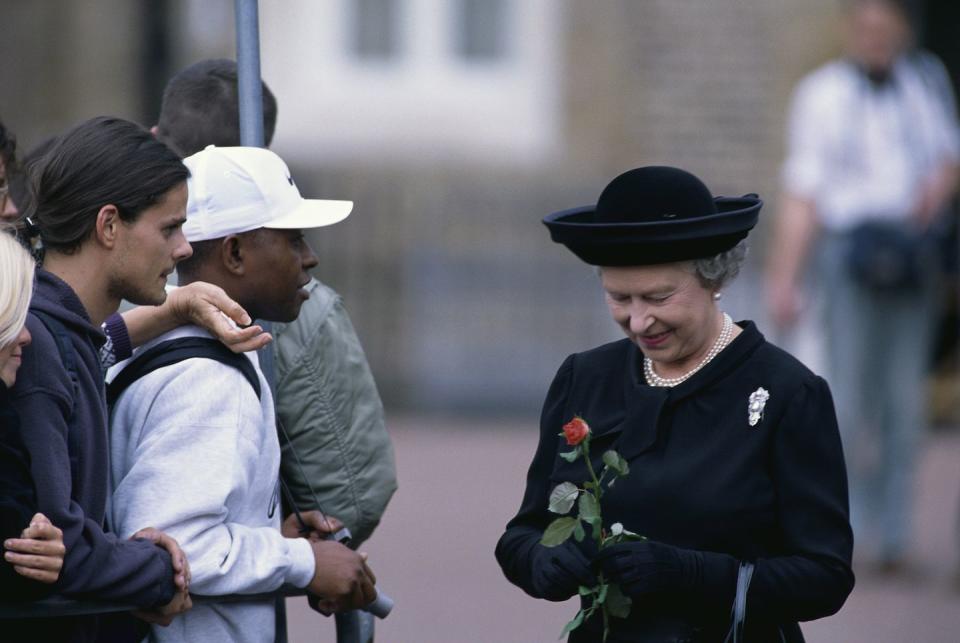
"It was indeed dreadfully sad, and she is a huge loss to the country. But the public reaction to her death, and the service in the Abbey, seem to have united people round the world in a rather inspiring way," the Queen wrote.
('You Might Also Like',)

